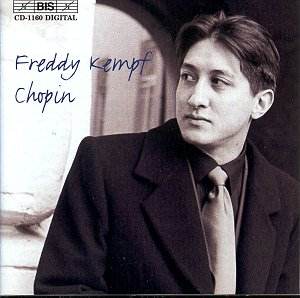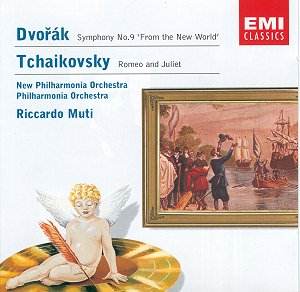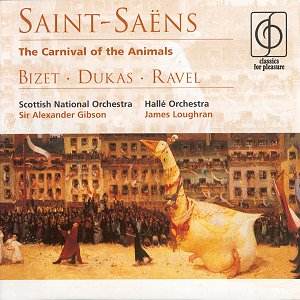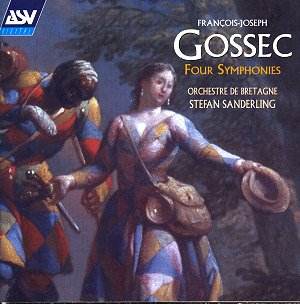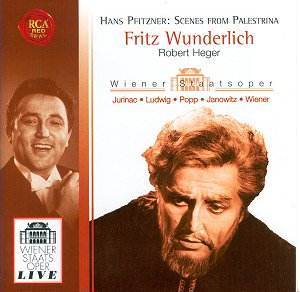 Composer: Hans Pfitzner
Composer: Hans Pfitzner
Works: Palestrina – Excerpts from Act One and Act Three
Performers: Fritz Wunderlich (tenor), Sena Jurinac (soprano), Christa Ludwig (contralto), Otto Wiener (baritone), Mimi Coertse (soprano), Lucia Popp (soprano), Gundula Janowitz (soprano), Hilde Rössel-Majdan (contralto), Vienna State Opera Chorus, Vienna State Opera Orchestra, Robert Heger (conductor)
Recording: Live recording by Austrian Radio (ORF) on 16 December 1964
Label: RCA
Hans Pfitzner’s opera Palestrina, first performed in 1917, occupies a unique place within the canon of German opera, interweaving themes of artistic integrity, faith, and the tension between personal and societal demands. Set in the late Renaissance, the opera’s narrative revolves around the historical figure Giovanni Pierluigi da Palestrina, often credited as the savior of sacred music during a time of ecclesiastical upheaval. The work is a dense tapestry of post-Wagnerian textures, marked by its profound psychological depth and lush orchestrations. This live recording from the Vienna State Opera, featuring an illustrious cast led by the incomparable tenor Fritz Wunderlich, presents a compelling snapshot of the opera’s rich emotional landscape.
Wunderlich’s performance as Palestrina is nothing short of revelatory. The tenor navigates the demanding vocal lines with a combination of youthful exuberance and mature introspection. His ability to reach the top C with seamless ease is a testament to his technical prowess, but it is his interpretative choices that truly elevate his portrayal. Wunderlich imbues Palestrina with a palpable sense of uncertainty, deftly conveying the internal struggle between his artistic convictions and external pressures from the Church. The aria “Seht, wie die Sonne” encapsulates this conflict, where Wunderlich’s lyrical phrasing and nuanced dynamics create an intimate dialogue with the listener, reflecting the character’s existential plight.
The supporting cast is equally exceptional. Sena Jurinac’s Ighino stands out for her rich, expressive voice, particularly in the duet with Palestrina, where the interplay of their voices highlights the emotional stakes of their relationship. Christa Ludwig’s Silla adds a gravitas to the proceedings, her contralto timbre cutting through the orchestral texture with clarity and conviction. The angelic trio comprised of Mimi Coertse, Lucia Popp, and Gundula Janowitz is a highlight, with their ethereal harmonies in the “Kyrie eleison” serving as a moment of transcendence amidst the opera’s weighty themes. The Vienna State Opera Chorus exhibits remarkable precision and blend, enhancing the operatic experience with their vivid choral contributions.
Sonically, the recording quality is commendable for its time, capturing the warmth and richness of the orchestra under Robert Heger’s direction. The balance between voice and orchestra is well-maintained, allowing the nuances of the performance to emerge without overshadowing the instrumental textures. The live setting adds an element of spontaneity that can only be achieved in a concert hall, where the audience’s reactions further energize the performance. There are moments where the orchestral sound may occasionally overwhelm the singers, yet these instances are relatively rare and do not diminish the overall impact of the performance.
When compared to other notable recordings of Palestrina, this live performance stands out not just for its historical significance but also for the sheer artistry displayed by its performers. While there are studio recordings that may offer a more polished sound—such as the version featuring the late, great tenor Nicolai Gedda—Wunderlich’s interpretation and the vibrant energy of this live performance encapsulate the essence of the opera in a way that studio recordings often cannot.
The legacy of this recording lies not only in the artistry of its performers but also in its ability to illuminate the complexities of Pfitzner’s score. Fritz Wunderlich’s portrayal of Palestrina resonates with both technical brilliance and emotional depth, making this recording an essential contribution to the operatic canon. The combination of a stellar cast, committed conducting, and the palpable sense of occasion ensures that this release remains a touchstone for both aficionados of the opera and those new to Pfitzner’s work.
